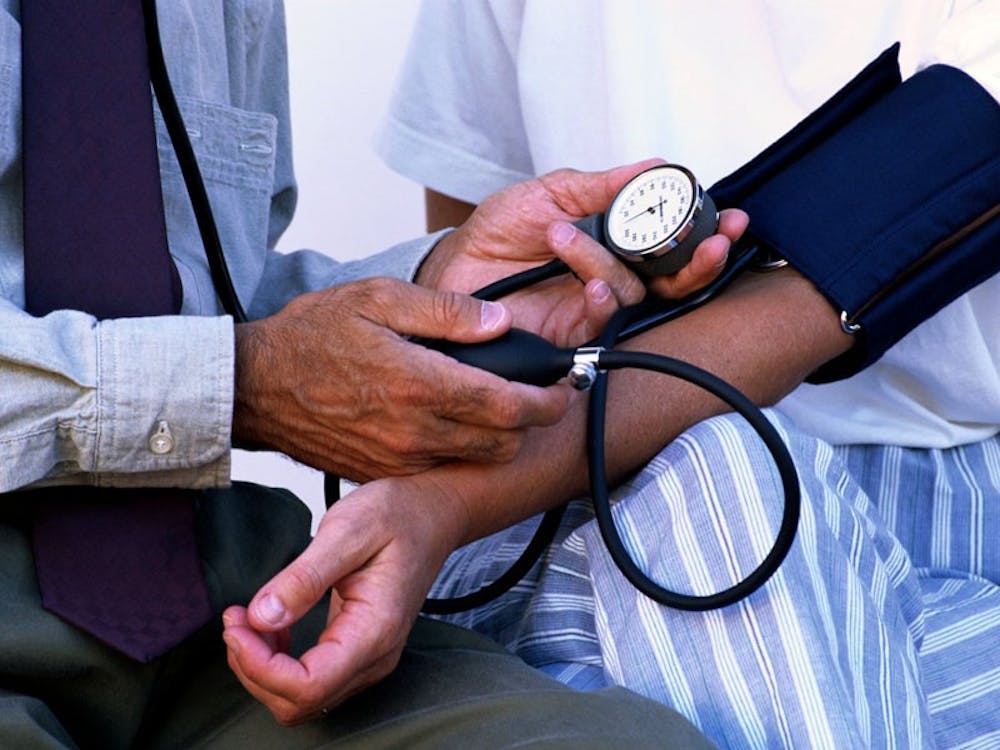Dr. Robert Carey, co-chair of the Hypertension Guidelines Writing Group of the American Heart Association and former dean of the University’s School of Medicine, recently helped redefine the guideline for high blood pressure. Previously, blood pressure readings greater than 140/90 were considered high. However, after further evaluation, the American Heart Association agreed that a reading of 130/80 would be the new cutoff for diagnosing high blood pressure.
“We had the new information that if you have blood pressure that was in the pre-hypertensive range according to the last comprehensive guideline in 2003, you still had a two fold increase in risk of heart attack, stroke and death,” Carey said. “So we needed to reexamine and reassess what we are calling high blood pressure.”
Dr. Hemly Siragy, a professor of medicine in the Division of Endocrinology and Metabolism and member of the Cardiovascular Research Center at the U.Va. Health System, said that normal blood pressure is considered a reading of 120/80. He said that readings over this value fall into the following categories — elevated blood pressure, stage 1 hypertension, stage 2 hypertension or hypertensive crises.
“High blood pressure is associated with increased risk for variety of diseases such as heart attack, stroke, retinal hemorrhage and impaired kidney function,” Siragy said in an email to The Cavalier Daily.
The World Health Organization has named hypertension the leading cause for cardiovascular disease and death in the world, causing around 9.4 million deaths every year.
Carey said that by lowering the threshold for the definition of high blood pressure, the overall prevalence of high blood pressure is increased by around 14 percent. However, a majority of newly diagnosed patients with high blood pressure are mainly recommended lifestyle modifications over using medication to control their blood pressure.
“The redefinition actually only resulted in about a 1.9 percent increase in the percentage of people that would require drugs to treat their hypertension,” Carey said. “So the cornerstone of the guideline is lifestyle modification.”
There are six lifestyle modifications that are significant in reducing one’s risk for developing high blood pressure and cardiovascular disease. These factors include accomplishing weight loss, reducing salt intake and eating a heart healthy diet such as the Dietary Approaches to Stop Hypertension diet. The DASH diet encourages individuals to increase their intake of fruits, vegetables and healthy fats while limiting sodium intake.
Other modifications include increasing aerobic exercise to three times a week for at least 30 minutes per day, reducing alcohol intake and increasing potassium intake. Potassium supplementation is essential due to potassium’s role in blood vessel dilation, which aids in reducing blood pressure.
“Controlling hypertension has been shown to lower the incidence of heart attack, stroke, and development of kidney failure … by early treatment of hypertension, we can improve on health and financial burdens,” Siragy said.
Carey said that many physicians are challenged by not being able to spend enough time with their patients and that lifestyle modification is a lengthy process that requires individual assessment. Therefore, he hopes that the U.S. government may help support a program of lifestyle modification for all Americans.
“I’m hoping that the guideline will call attention to the immense cardiovascular risk that high blood pressure conveys to people,” Carey said. “I’m hoping that adults in the United States will be advised by their physicians to embark on lifestyle modification.”







